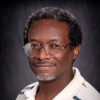Eugene Kennedy

Eugene Kennedy
Eugene Cullen Kennedywas an American psychologist, syndicated columnist, and a professor emeritus of Loyola University Chicago. He remained a professor of psychology at the university for several years. A laicized Catholic priest and a long-time observer of the Roman Catholic Church he wrote over fifty books on psychology, religion, the Catholic Church, and THE psychology of religion, and also published three novels, Father's Day, Queen Bee, and Fixes. He wrote a column for the Religious News Service, distributed by the...
NationalityAmerican
ProfessionPsychologist
Date of Birth18 August 1928
CountryUnited States of America
Good priests never look for awards and, perversely enough in the clerical culture universe, do not receive many. Like the aged nuns who taught selflessly and nearly anonymously all their lives, these servants of the People of God only get into the papers when their obituaries are printed.
Facebook may not only propagate cyber-loneliness but exacerbate the pain of loss that estranged family members feel when they hear only indirectly, through a third-party posting, news of a child or parent with whom they have not spoken in years.
Bishops may often feel but cannot express the sting and throb of submitting themselves to Roman commands because the latter are always presented as tests of their loyalty to the Pope and of their absolute acceptance of his teaching authority, or Magisterium.
The world, more suffering than sinning, turns toward Pope Francis as in a conversation people turn to the person who is making sense of things.
From his first hours as pope, Francis has re-enacted or spoken of the great pastoral transformation of Vatican II as his own agenda.
As dutiful bishops soon discover, authoritarianism, or control from the top down, characterizes the hierarchical tradition.
If you ask people what attracted them to the person they love, they never tell you of some perfect feature that focused them on sheer surfaces but rather an imperfection that allowed them to see into their uncharted depths.
The object of religion is the imagination, that deep and inexhaustible font of our understanding and symbolizing our deepest possibilities.
Catholicism actually resembles a family that survives because even as it aspires to holiness, it understands and can live with sin and imperfection.
The mystery of being human and, certainly, of being a Catholic lies in our embracing together the imperfect state known as the human condition. First and foremost, if we could ever be perfect or do things perfectly, we would eliminate mystery, an essential ingredient in the good life and the spiritual life.
As in the Divine Right of Kings, hierarchies invest those who preside at the top of their pyramidal structure with absolute power to rule over the lesser ranks that spread down like a marble staircase to the broad foundation stones of those with no power at all.
Friendship is something whose depth fits human aspirations and fulfills human possibilities. It has heft to it, as a gold-piece does and a gambling chip does not.
In April, God speaks to us in the seas whose rhythmic murmuring fills our ears from a long way off. It was in April that the Titanic went down into the deep to lie like a slasher's victim, bleeding the 'debris field' - its passengers' personal possessions, the everyday things of everyman and everywoman - across the ocean's floor.
We may thank God that we can feel pain and know sadness, for these are the human sentiments that constitute our glory as well as our grief.